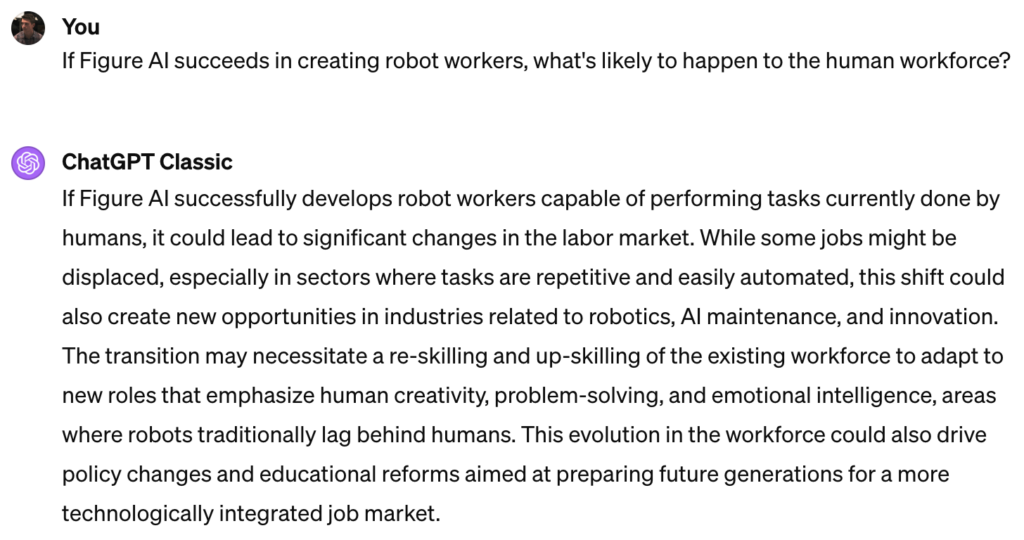Welcome to the newest edition of FindBiometrics’ AI update. Here’s the latest big news on the shifting landscape of AI and identity technology:

An alignment-focused startup has emerged from stealth mode. Synth Labs is backed by the Microsoft venture capital fund M12 as well as First Spark Ventures. Its aim is to help other companies ensure that their AI tools do what they want them to do.
Microsoft has invested an undisclosed amount of capital into Mistral, the France-based AI startup, as part of what Microsoft CEO Brad Smith described as a “multi-year partnership”. The companies will work together to help governments in Europe use AI models “to address public sector-specific needs”. Mistral is widely seen as a rival to OpenAI, in which Microsoft has invested about $13 billion.
Microsoft has also invested in Figure AI, together with OpenAI and Nvidia and others. Figure AI is working on bringing AI to humanoid robots to disrupt the labor market. It raised $675 million in a new funding round that brought its valuation to $2.6 billion.
Chipmaker AMD’s market capitalization broke $300 billion this week, after Citigroup asserted that its analysts are “wildly bullish” on semiconductors amid ongoing growth in the AI market, and named AMD as a favorite. As Bloomberg notes, AMD shares trade at almost 50 times the company’s estimated earnings.
Pika has launched a text-to-animated speech feature in partnership with ElevenLabs. The latter’s synthetic voice technology essentially enables a lip-synching capability on Pika’s text-to-video platform. Paying subscribers can make an AI character mouth the words of uploaded audio, or simply type the dialogue they’d like the character to say.
Georgia’s House of Representatives has passed legislation that would require political campaigns to disclose their use of AI-generated content. House Bill 986 would also make it a felony to publish “deceptive information” within 90 days of an election, GovTech reports, though there are exemptions for satire. It will now be considered by the Georgia Senate.
Researchers at Dartmouth College say they have developed a mobile-based face biometrics app that can reliably detect whether an end user is suffering from depression. The MoodCapture app is designed to assess depression symptoms whenever an end user unlocks their phone. While the researchers hope that MoodCapture can serve as a valuable healthcare tool, emotion recognition has emerged as a risky application of AI technology in European Union regulatory deliberations.
The chatbot’s take: We wanted to check if ChatGPT found anything dystopian about Figure AI’s plans.

–
February 29, 2024 – by Alex Perala








Follow Us